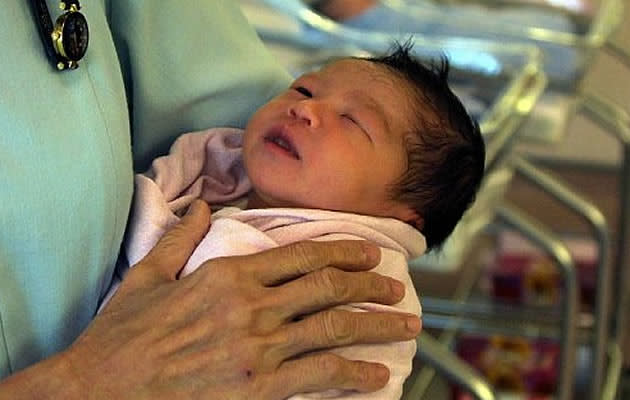‘Extreme measures needed to encourage more babies’

In a new column called "The Flip Side", local blogger Belmont Lay lets loose on local politics, culture and society in his weekly musings. To be taken with a pinch of salt and with parental permission advised. In his second post, he suggests the best approach to spur Singaporeans to make more babies.
If you've spent enough time in this country, you should be well aware by now that Singapore is renowned for taking extreme measures.
Consider these instances:
Exactly 20 years ago, a blanket ban on chewing gum was effected the moment it was discovered to have been the cause of MRT train doors jamming.
Chia Thye Poh, on the suspicion of being a subversive element, was put away without trial for 32 years, and has been nearly forgotten by most of us today.
The floodgates to mass immigration was opened five years ago in the name of Economic Growth with nary a public debate or consultation regarding such a policy.
Therefore, "excessive" is probably one of the first words that come to mind if you had to describe these measures.
So, before we go any further, here's the point of today's missive: If the government has the power to do so much, why can't it go to the extreme and take drastic measures to reverse the declining total fertility rate of Singapore?
If more babies is the key, why not do more than just implement merely moderate measures that try to encourage baby production?
In his Chinese New Year message this year, Prime Minister Lee Hsien Loong is requesting that Singaporeans do the nasty more often.
Preferably without contraception. And he is not being pervy.
This is because Singapore is experiencing a crisis of sorts where the total fertility rate is concerned. The rate plunged from 1.6 in 2000 to 1.15 in 2010, before going back up very slightly to 1.2 in 2011.
In his message, Lee pledged to do more for families, promising extended maternity and childcare leave, creating more childcare centres to make childcare more affordable and helping young couples obtain their first HDB flat as soon as possible.
More substantial incentives, please
But I doubt these measures taken together will be enough to solve the problem.
Lee said, "The critical factor now is not more financial incentives, but creating the supportive social climate and attitudes that will encourage couples to have more children".
And this is where I think he is absolutely wrong.
Look, for example, to discourage people from taking drugs for recreation, Singapore could foster a supportive social climate and attitudes to deter use.
But, alas, no.
As far as I can tell, the Singapore government is relying on excessive legislation and enforcing draconian laws to hang traffickers, as well as jail and cane users.
In the same way, rather than just creating a supportive social climate and attitudes for couples to have more babies, Singapore ought to take a more blatant positive step.
The obvious way is to dish out more substantial financial rewards.
In short, you prevent people from doing something by implementing extreme penalties.
Likewise, you encourage people to do something by implementing extreme rewards.
The classic carrot and stick method.
Expecting a baby? Sure, you don't have to pay taxes for one year because that money shall be used instead for your child's diapers, milk powder, toys, check ups and vaccinations.
Also, your employee Central Provident Fund contribution will be reduced to 10 percent for 24 months.
This mean more liquidity for the parents and definitely not at the expense of the state or government because anything that is diverted away from your CPF is still legally your own money anyways.
And if any woman has twins, it will be a double bonanza.
Why? Because the major deterrent to having a child, or more of them, is that it costs a bomb these days.
It is, therefore, infuriating to know that in areas where the government should overstep its boundaries, it doesn't.
And in areas where it probably shouldn't, it does.
Simply, you can have the best child care centres and HDB flats, but Singaporeans, especially the younger ones, can't gain access to them if they simply don't have enough money.
Or, worse, if Singaporeans spend a large part of their waking hours just trying to make ends meet to put food on the table and pay the bills.
Given this reality, they will preferably choose to lead a life of quiet dignity in the present. And forget about having children who can ensure their futurity.
Don't be mistaken, I will always insist that Singapore is a tolerable place to be single or married. Not necessarily the best, except that it is a relatively stable place.
However, what Singaporeans really need, is to be convinced enough, in fairly assertive and forceful terms, to make the transition from singlehood to being married to becoming parents.
In the same extreme way everyone here is being convinced that recreational drug use is not worth the incarceration, lashing or hanging.
Belmont Lay is one of the editors of New Nation, an online Singaporean publication that is the bronze standard in journalism.

